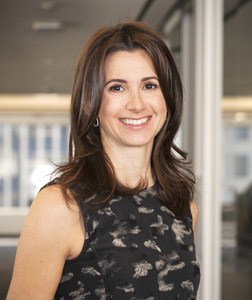The interview below is part of an ongoing effort by McGuireWoods to profile women leaders in private equity. To read previous profiles, click here. To recommend a woman for a future interview, email Amber Walsh at [email protected].
 The daughter of an entrepreneur and elementary school teacher, Shoshana Vernick grew up in Northwest Indiana and has spent the last 20 years as a business builder and investor. She's been an unwavering presence at private equity (PE) firm Sterling Partners for 16 years, an advocate for conscious capitalism and a board member to both for- and not-for-profit organizations across the United States. In 2015, Vernick and her two colleagues launched Sterling's first-ever, sector-specific investment fund, the $252 million Education Opportunity Fund, where her strategic expertise and creativity are sought after by both entrepreneurs and executives.
The daughter of an entrepreneur and elementary school teacher, Shoshana Vernick grew up in Northwest Indiana and has spent the last 20 years as a business builder and investor. She's been an unwavering presence at private equity (PE) firm Sterling Partners for 16 years, an advocate for conscious capitalism and a board member to both for- and not-for-profit organizations across the United States. In 2015, Vernick and her two colleagues launched Sterling's first-ever, sector-specific investment fund, the $252 million Education Opportunity Fund, where her strategic expertise and creativity are sought after by both entrepreneurs and executives.
Q: What attracted you to PE?
Shoshana Vernick: Growing up, I had no exposure to private equity. My mom was a school teacher and my dad ran a small company he started when he was 26. I always admired how much my dad cared about his employees and how creative he was with product design. Education and hard work were valued in our house and my athletic accomplishments were celebrated. From an early age, I was motivated to achieve financial freedom, but at the same time I knew that I wanted to do something big and important. I just didn't know what was possible.
My competitive spirit and thirst for opportunity led me to New York, where I started my career in investment banking at Merrill Lynch. I was excited to explore something new and thrilled by the immediate access given to young professionals. My learning curve was steep, and I was luckily surrounded by good, smart people. From there, my love of design and desire to broaden my exposures led me to a digital strategy firm called Razorfish. At Razorfish, my respect for diversity of thought really began to cement and I earned my first exposure to the interplay between leadership and a board of directors. Attracted by the opportunity to create value across multiple organizations simultaneously and to work with incredibly interesting people, I entered private equity in 2001.
Q: Why do you actively support diversity in the boardroom and at the executive ranks?
SV: Throughout my career, there have been people and moments I will never forget. These inflection points have usually been created because of exposure to something new or different. When I think about the best teams I've ever been a part of, there are commonalities: trust, collaboration and insight that is gained from our different perspectives.
I am a passionate believer that teams and boardrooms must be able to relate to the purpose and customers they serve and that diversity requires intention. Unfortunately, achieving diversity is still not easy. However, I'm determined and committed — and a little stubborn — about making sure we bring attention and priority to the importance of it.
Q: How do you think about PE in the context of social impact?
SV: It's about the power of the "and." At the Education Opportunity Fund, we seek traditional PE returns; however, we believe that a company must be grounded in a strong purpose in order to sustainably achieve its profits. We have been able to make a difference across all sectors in the education and employment markets by bringing innovative products and solutions to students and institutions alike, all while achieving returns for our limited partners.
Occasionally, we still fight the negative stigma of private equity. However, our commitment to building enduring businesses and track record of helping companies reach new heights usually persuade even the most skeptical critic that you can do both – make money and make an impact.
Q: Can you share a personal story that you feel exemplifies the value of women entrepreneurship?
SV: In 2018, I was introduced to Jennifer Attal, founder and CEO of Academic Programs International (API). She and her three female co-founders, the "four mamas," started API in 1997 with, as Jennifer states so well, "a mission to provide an education abroad experience that, as mothers, we would expect for our own children." API was helping around 4,000 students annually in their learning journeys through 29 countries. However, we knew that the impact potential was significantly greater.
Our fund announced a strategic investment in API last summer. Jennifer stayed on as CEO and she welcomed me into the organization the day we closed, as the "fifth mama." It was a proud moment for us all.
To contact Vernick, email [email protected].